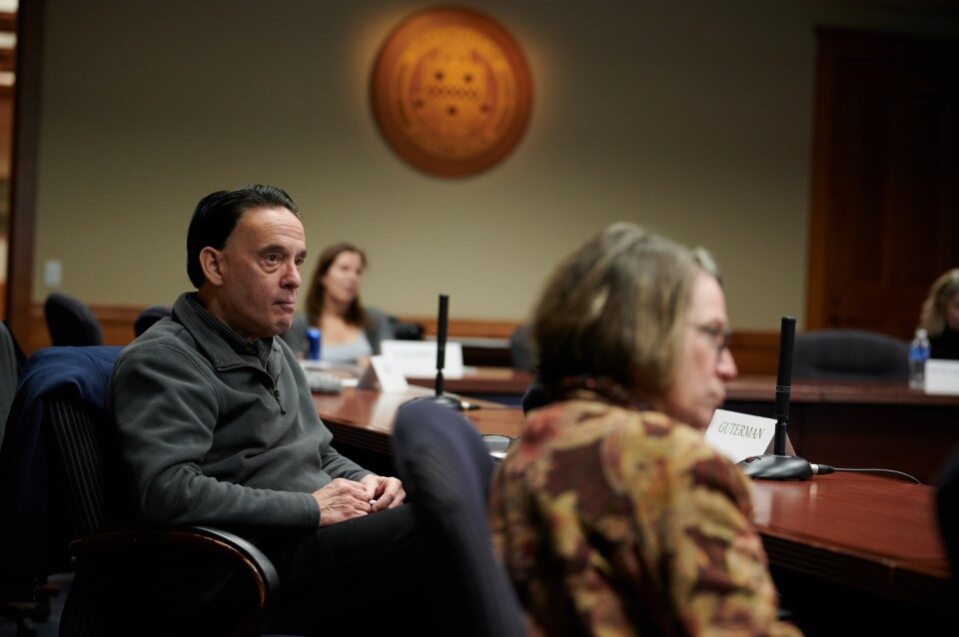Faculty Assembly President Robin Kear addressed concerns about the new Dec. 17 winter commencement at its final meeting of the year.
“Because this is the first year of this half-year sort of winter commencement, there is flexibility for students to walk in April if they would prefer it,” Kear said. “You can see that communication from Interim Provost McCarthy on the winter commencement website.”
Faculty Assembly met on Wednesday afternoon in room 2700 Posvar Hall and over Zoom. During the meeting, they discussed winter commencement, a new LGBTQIA+ steering committee, recent email phishing attacks and the final report of the ad hoc dependent care committee.
Lori Ann Molinaro clarified that the April flexibility is available only to undergraduate students.
“Spring University-wide commencement at the Petersen Events Center is for undergraduates only,” Molinaro said. “Each graduate school coordinates their own spring ceremony.”
Kear also gave an update regarding the search for a new provost.
“The provost search committee has moved into the confidential phase,” Kear said. “Thank you to those that have contributed feedback, be it in the survey or in the listening sessions, or anyone who put names forward for consideration.”
Kear announced a new LGBTQIA+ steering committee, which will create a central body of faculty, staff and students to share, learn, report and assess the opportunities to “advance enterprise-wide efforts” made toward improving the climate and culture at Pitt for the LGBTQIA+ community.
“While the University is committed to supporting equity, inclusion and civil rights, including the protections for the LGBTQIA+ community, we know that there remains significant work to be done and we are hopeful that through the work of this committee we can make more substantive progress to realize the promise of Pitt for all members of this community,” Kear said.
The committee will consist of direct appointments, shared governance representatives and representatives from existing LGBTQIA+ organizations. Kear said Todd Reeser, a faculty member in the Dietrich school, and Angie Bedford Jack, a senior staff member in the Office of Equity, Diversity and Inclusion, will serve as co-chairs.
Senate Council will assist with electing board members to the search committee for the next Learning Research and Development Center director. Kear said those identified in the unit will self-nominate, run for and vote on the board member spots.
“Unless you’re affiliated with the LRDC, you won’t be hearing about this,” Kear said. “But this is something that the Senate does work on through our guidelines for senior academic administrators.”
Kear also reported that Pitt received its funding appropriation.
“It is flat though, which is okay news. We received that for [fiscal year] ‘24. You may have seen the phrase ‘strategic expense reductions’ in the announcement that came out from administration,” Kear said. “The existing budgets for this year will remain the same and there will not be any new expense reductions related to the flat funding.”
Interim Chief Information Security Officer John Duska discussed cybersecurity and recent email phishing attempts. He said while Pitt already successfully blocks many malicious emails and the attacks have become less severe in recent weeks, Pitt IT still wants to do more to reduce the impact of the attacks.
“Half of all email received by Pitt is considered potentially malicious and thus is blocked,” Duska said. “So this time of the year, that equates to over 1 million blocked emails each day. I think today it was about 1.3 million that were blocked. So even though we’re blocking this huge number of emails, you have to remember that no filter is ever 100% reliable. So we continue to have phishing attacks.”
Duska described three measures that Pitt IT is already taking to minimize the impact of phishing attacks. The first is “modern auth,” which is enabled on all Pitt email accounts except alumni accounts.
“This means that multifactor authentication or Duo is required anytime a user allows or changes access to pin email on a device,” Duska said.
The second measure is that anyone who does fall victim to phishing is enrolled in phishing security training, which consists of an educational video, according to Duska. They’re then also sent additional phishing simulations over the next few months to improve their ability to recognize phishing attempts.
“Third, and most recently, we applied anti-phishing filtering to Pitt emails, not just external emails,” Duska said.
Duska said there are three other measures that Pitt IT is considering implementing to address the phishing. The first is to reduce the number of active alumni accounts. The second is to enforce a more realistic limit on the maximum number of emails a single account can send in one day, and the third is to restrict auto-forwarding of all Pitt email accounts.
Anna Wang-Erickson, assistant professor of pediatrics and chair of the assembly’s ad hoc dependent care committee, delivered the committee’s final report. Some of the specific complaints investigated by the committee included students and postdocs being barred from claiming awarded NIH child care supplements. Wang-Erickson also cited the Pitt Seed Dependent Care Travel grant program not gaining permission to launch as another complaint.
“Our recommendations are first to change FN28 to allow dependent care expenses from all available funding sources, both internal and external. The second one is to establish a new dependent care voucher fringe benefit,” Wang-Erickson said. “Third is to establish a dependent care professional development grant. And the fourth is to add one [full-time employee] to HR to administer these new programs, as many other universities have multiple staff dedicated to managing the kind of care or work life programs.”


